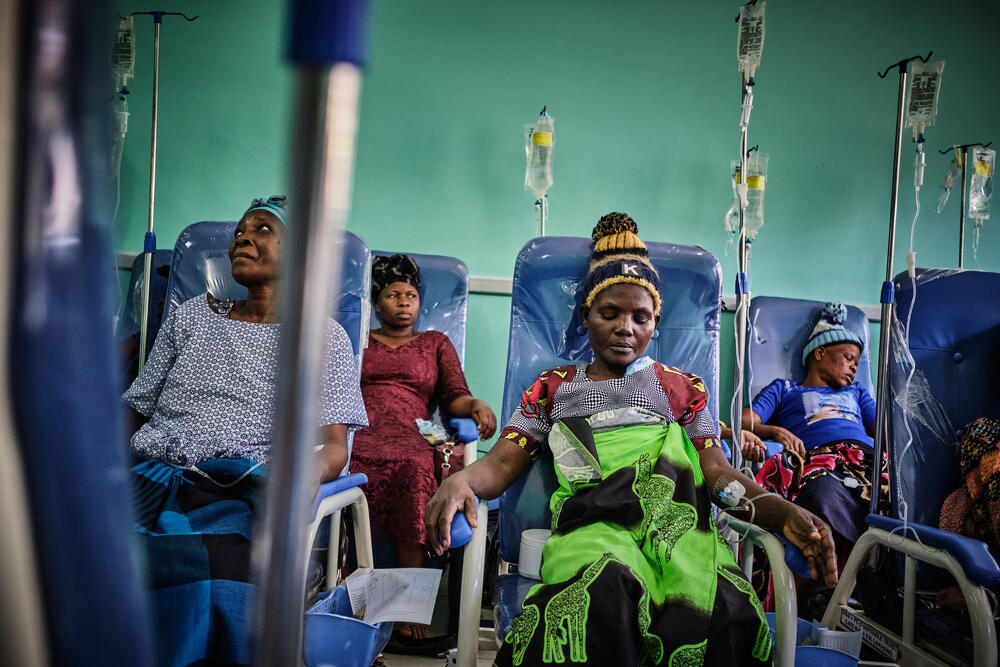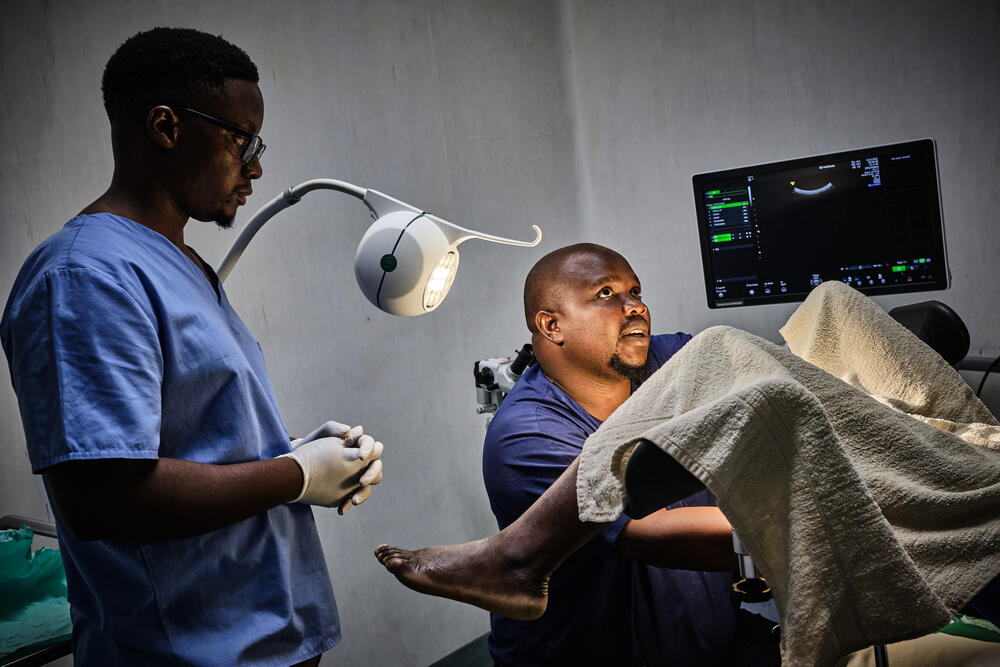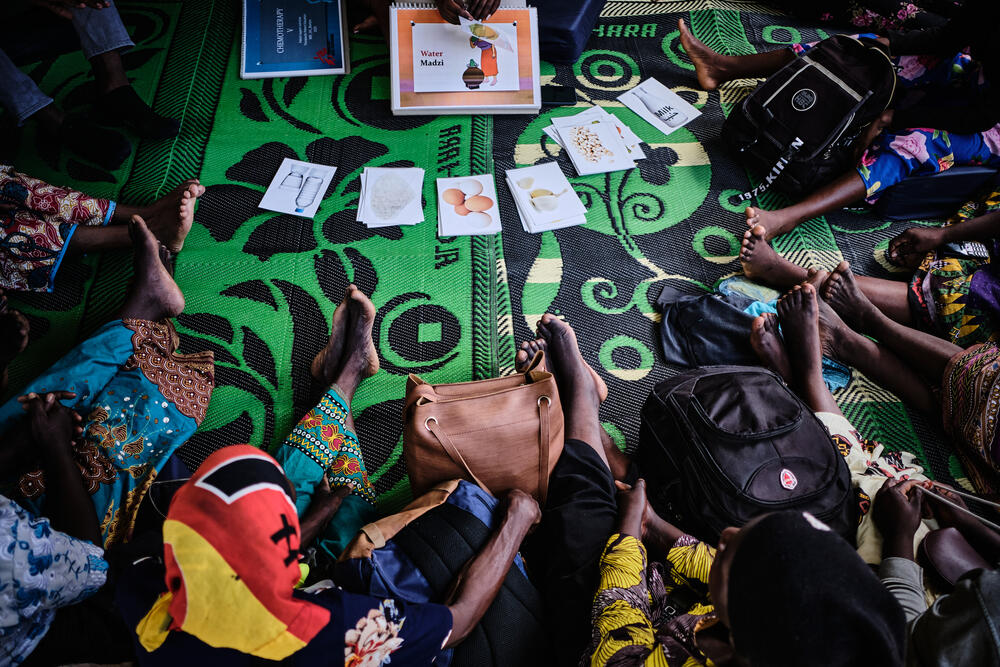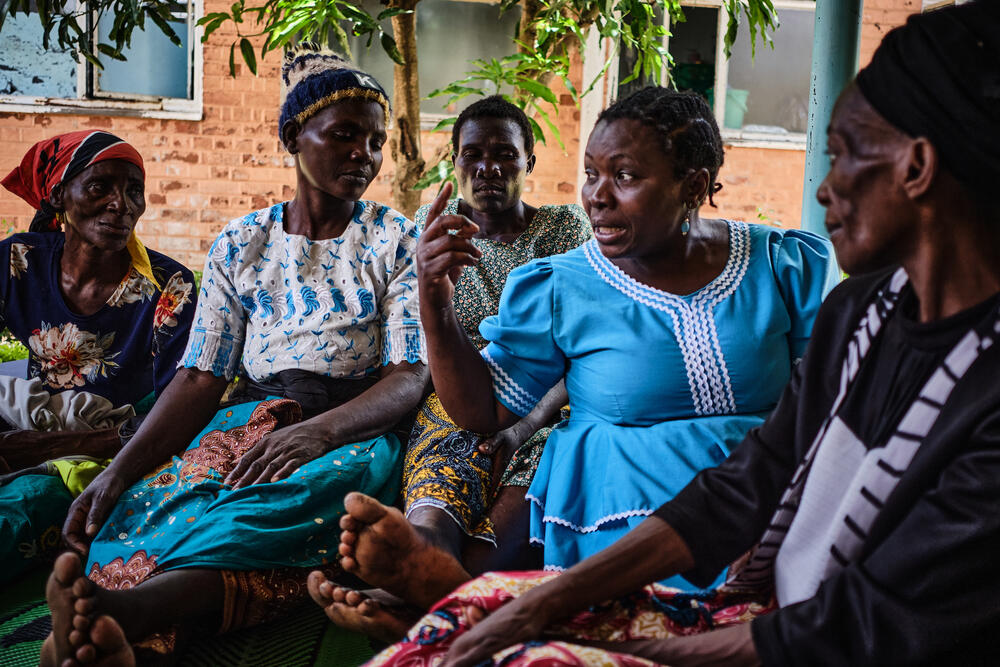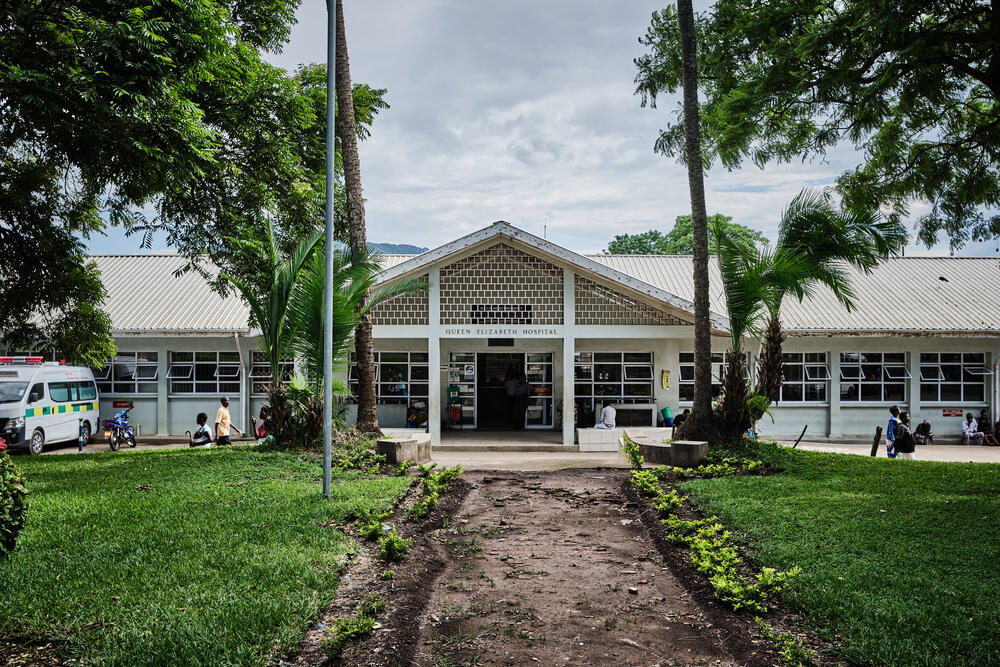Malawi: MSF's innovative model of care for women living with cervical cancer
Women in Malawi face one of the highest rates of cervical cancer in the world, while the disease makes up 37 percent of all new cancers in women.
Since 2018, Médecins Sans Frontières / Doctors Without Borders (MSF) has been working to reduce the incidence of cervical cancer and bring down deaths from the disease in the districts of Blantyre and Chiradzulu.
This is a life-saving medical project, but one that might seem unusual for an organisation known for working in humanitarian emergencies such as conflicts and disaster zones.
Here, Marion Péchayre, Head of MSF in Malawi, explains more about this vital work:
Why is MSF treating cancer patients in Malawi?
MSF’s work on cancer is the result of a combination of factors.
In low-income countries, epidemiological patterns suggest a decline in infectious diseases and a simultaneous rise in chronic diseases such as cancer.
The lack of resources and the late stages at which cancers are diagnosed in sub-Saharan Africa, for example, suggest that they will eventually claim more victims than infectious diseases. Just as they do currently in high-income countries.
The World Health Organization estimates that cancer mortality will double in Africa by 2040.
In Malawi, where we have been providing HIV/AIDS care for many years, we found that a lot of our patients had cervical cancer, too. Women with HIV are six times more likely to get cervical cancer than women without HIV.
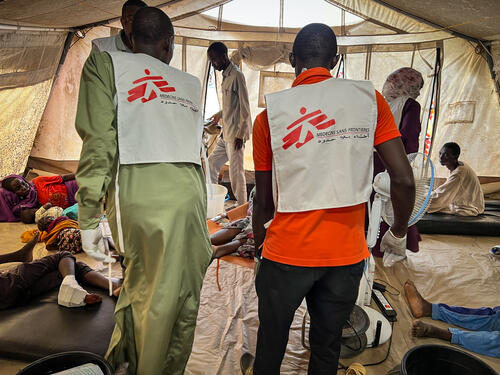
Our work saves lives
This led us to carry out a comprehensive assessment of the cervical cancer problem in Malawi, which has the second-highest prevalence and mortality rates in the world. In 2020, 4,145 new cases of cervical cancer were detected and 2,905 women died.
Access to anti-cancer drugs is highly variable, radiotherapy is non-existent, and surgery is poorly developed.
We are also interested in supporting vaccinations to protect against cervical cancer where possible, as well as extending screening programmes and developing treatment solutions.
How does MSF treat cancer without radiotherapy?
Radiation therapy is normally the first-line treatment for cervical cancer, but it is not currently available in Malawi.
Never miss an update
Get the latest news with our monthly email newsletter, Frontline.
You'll also receive our best stories, critical updates and unique ways to get involved.
Over the past two years, MSF has developed a model of care that combines chemotherapy and surgery. After three to six cycles of chemotherapy, tumours have shrunk and can be operated on, saving patients’ lives.
We don’t yet have the data to assess the two-year survival rate, but the treatment shows satisfactory results and can be expected to provide a life expectancy fairly close to that of treatment with radiotherapy.
In countries with limited resources, this type of treatment could be considered as a serious alternative to radiotherapy as long as there are well-trained surgeons.
This is why we have paid particular attention to training the surgeons who perform advanced procedures such as hysterectomies (where the uterus is partially or totally removed).
Each month in our project, surgeons perform an average of 14 hysterectomies and 40 surgeries in total. As a result, these surgeons have become highly specialised in onco-gynaecological surgery when compared to their counterparts in Europe where this surgery is rare.
The quality of treatment is backed up by a multidisciplinary team involving anatomopathologists, oncologists, surgeons and supportive care teams who provide social and psychological support, physiotherapy, or palliative care.
There is another category of patient whose cervical cancer is detected at a more advanced stage.
For these women, we arrange and finance referrals to Kenya so that they can have radiotherapy there. However, these referrals require significant support and resources and patients cannot benefit from them on a large scale.
But, by the end of 2023, we should have access to radiotherapy in Malawi which will make it much easier to arrange treatment for women with advanced cervical cancer.
How do vaccinations help lower the cancer rate?
Vaccinations are crucial because cervical cancer is easily preventable.
It is one of the few cancers associated with a virus – the human papillomavirus (often known as HPV) – and there is an effective vaccine against some HPVs.
The other way to protect against cancer is screening, which is both a means of prevention and the first phase of treatment as pre-cancerous lesions can be treated at this stage.
The HPV vaccine is made available through international mechanisms such as GAVI, the vaccines sharing initiative.
However, routine vaccination in healthcare centres still doesn’t easily reach girls between nine and 13 in Malawi – the group we’re targetting.
They don’t come to health centres as they don’t generally get sick, so they need to be vaccinated either at school or, if they don’t go to school, in their villages.
These kind of systematic prevention programmes in schools and communities require resources.
We will continue supporting these vaccination programmes, in partnership with the Malawian Ministry of Health. Just as we did in January, when we vaccinated 17,000 adolescent girls in the district of Phalombe.
MSF and cervical cancer
In 2020, an estimated 342,000 women died of cervical cancer. More than 90 percent of those women lived in low- and middle-income countries. The inequality of this disease is stark.
In 42 countries around the world, it kills more women than any other cancer. Compare that to the UK, where cervical cancer ranks 18th.
